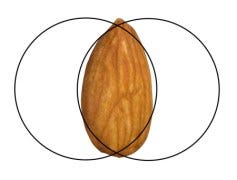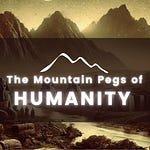The Return to Natural Birth and Conscious Self-Sufficiency in Modern Society:
In recent years, a notable shift has emerged within birthing communities—a return to the natural processes that governed childbirth long before the rise of modern hospitals and medical interventions. This movement, aimed at restoring the innate wisdom of the female body, seeks to integrate ancient traditions and holistic approaches into the birthing process. There’s a growing awareness of the importance of the human, emotional, and spiritual aspects of childbirth that often seem lost in the cold, clinical atmosphere of modern hospitals. With the rise in popularity of doulas, birthing coaches, and home birth advocates, more women today are choosing to birth with emotional support from women, placing their trust in a nurturing, communal environment.
Yet, the modern medical model—with its heavy reliance on technological interventions—continues to dominate. This tension between natural processes and medical intervention raises questions about control, autonomy, and the evolving understanding of birth as a process deeply intertwined with culture, identity, and even broader societal structures.
In the midst of this conversation lies a broader theme—one that extends far beyond the birthing room and touches on humanity’s growing unease with industrialized systems. From food production to healthcare, people are increasingly seeking ways to reclaim independence, opting for more natural, sustainable lifestyles that prioritize self-sufficiency over dependence on institutions. This has sparked a collective awakening, where individuals are looking critically at how they live, work, and consume, and striving to escape the artificial constraints that seem to define contemporary life.
The Doula Renaissance: A Reclamation of Birthing Wisdom
Doula-assisted births have become a symbol of this shift. Historically, women were always supported by other women during childbirth, a time of profound vulnerability and strength. This sense of community and shared wisdom was lost with the rise of industrialized medicine, where the birthing process became more about managing risk and less about honoring the spiritual journey of bringing life into the world. Hospitals offer safety, advanced equipment, and immediate access to life-saving interventions, but what they often lack is the human element—the emotional support that a woman in labor needs.
This void has led to the resurgence of doulas, birthing coaches, and midwives. These professionals provide not only physical but emotional and psychological support, allowing women to make informed decisions about their birthing experience. Many women now feel empowered to choose a birthing plan that aligns with their values, whether that means a home birth, water birth, or a hospital delivery with minimal interventions.
The irony, of course, is that modern society is now rediscovering what ancient civilizations understood innately. As one birthing advocate put it, "It's ironic that nowadays, in birthing communities, there is now a conscious move to incorporate more natural elements, to return to the way that women gave birth prior to hospitals and the chemical processes that are so common today." There’s a realization that birth is not merely a medical procedure, but a holistic experience that demands respect for the mother’s physical, emotional, and spiritual needs.
This shift towards natural childbirth is also part of a broader trend—one that challenges the very foundations of industrialized, modern life.
The Synthetic World: Industrialization of Food, Medicine, and Society
The push towards self-sufficiency extends beyond the birthing room, reaching into every aspect of modern life. Food, healthcare, and even societal norms are being scrutinized as people seek to detach themselves from artificial systems. Concerns about genetically modified organisms (GMOs), synthetic foods, and the over-reliance on pharmaceuticals are increasingly prominent. Many now feel that modern industrial practices—whether in agriculture or healthcare—are designed not to nourish and heal, but to perpetuate a cycle of dependence and control.
One striking example of this concern is the food industry. The documentary "Super Size Me" famously highlighted the durability of fast-food fries that wouldn’t decompose over weeks—a testament to the artificial processes involved in their production. The same billionaire who controls vast agricultural lands in the United States, producing the ingredients for these fast-food chains, also has significant investments in pharmaceutical companies. The links between food, health, and corporate control are becoming more apparent, as people realize that the same entities responsible for producing unhealthy food are profiting from the resultant health crises.
For many, this realization has sparked a return to basics. Growing one’s own food, seeking out organic and sustainable options, and questioning the safety and ethics of industrial agriculture have become acts of rebellion against a system that prioritizes profit over well-being. Yet, even this movement has its challenges. In some places, like California, individuals are taxed for growing their own food, a blatant effort to disincentivize self-sufficiency and keep people reliant on industrial food systems.
Islamic Perspectives on Self-Sufficiency: A Timeless Model
As Muslims reflect on their faith and the life of the Prophet Muhammad (PBUH) and his family, they see clear guidance on how to navigate these modern challenges. The emphasis on self-sufficiency, simplicity, and spiritual resilience in the face of adversity is deeply ingrained in Islamic teachings. The Prophet’s daughter, Fatimah (AS), and her family exemplify these values. Despite living in a time of immense hardship, political persecution, and economic constraints, Fatimah (AS) and her family remained steadfast in their faith and independent in their lifestyle.
Their example serves as a timeless model for modern Muslims. In an era where societal systems often seem designed to undermine true self-sufficiency, the lessons from the lives of the Prophet’s family encourage a return to simplicity, contentment, and spiritual richness over material wealth.
The concept of self-sufficiency within Islam extends beyond the individual. It includes a holistic approach to life—where one seeks to be independent not only of corporate systems but also of state control. As one revert reflected, "As Muslims, when I researched Islam, I noticed that the theme of self-sufficiency, the theme of being independent of the state and others, was very much something that got my attention." This quest for independence aligns with the broader Islamic principle of reliance on Allah Alone. It is a reminder that while Muslims engage with the world, they must not become overly dependent on worldly systems.
Navigating Modernity with Consciousness
Whether in the context of childbirth or broader societal structures, there is a growing recognition that modern systems—though filled with technological advancements—often fail to meet our deeper human needs. The rise of the doula movement and the return to natural birthing practices are emblematic of this. Similarly, the desire for self-sufficiency and independence from corporate and state control reflects a broader yearning for authenticity and simplicity in a world increasingly dominated by artificial systems.
In both cases, the solution seems to lie in a conscious return to what is natural, sustainable, and spiritually fulfilling. This return is not a rejection of progress but a reclamation of wisdom—an acknowledgment that the old ways often carried within them a deep understanding of human nature, community, and the rhythms of life that modern systems have overlooked.
In an age where control and dependence seem to be the underlying forces of societal structures, choosing to trust the body’s wisdom in childbirth, grow one's food, and live a life of simplicity and faith is a revolutionary act. It is a reclaiming of agency, a recognition that, as humans, we are part of something much larger and more profound than the artificial systems we have created. Ultimately, it is a reminder that true freedom and self-sufficiency come not from breaking away from one system only to be enslaved by another but from living a life that is deeply in tune with both the physical world and the spiritual realm.
We're transitioning from 'The Direction of Khadijah' to 'The Element of Fatima' in our Maternalist Quartet Series.
This week’s topic is "Of Fruits & Pharaohs." Join us as we explore how to find our direction towards Allah SWT with the guidance of the Best of Women.
Subscribe to stay updated and be part of our journey.
#iman #deen #Khadijah #Fatima #prophetmuhammad ﷺ #qibla #legacy #sadaqah #quran #hadith #history #arabic #islam #ahlulbait #medicinewomen
Subscribe to The Maternalist Quartet channel on YouTube:














